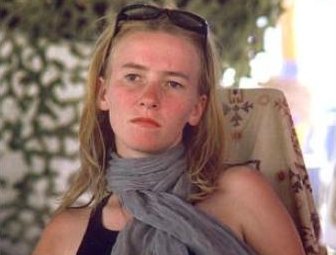Tag: Rachel Corrie
-
Bulldozer driver testimony underscores lack of transparency in Corrie trial
23 October 2010 | Rachel Corrie Foundation Voice behind screen says soldiers don’t stop work. Haifa, Israel – The bulldozer driver who struck and killed Rachel Corrie in March 2003, in Rafah, Gaza, testified for the first time Thursday in the civil lawsuit filed by the Corrie family against the state of Israel, but did…
-
Ynet: Bulldozer driver testifies in Rachel Corrie case
21 October 2010 | YNet News The bulldozer driver who ran over Rachel Corrie in Gaza in 2003 said Thursday he did not realize he had trampled the American left-wing activist to death until he heard what had happened over the radio network. The driver, whose name has not been released, testified during a Haifa District…
-
Guardian: Rachel Corrie case: Israeli soldier to testify anonymously
20 October 2010 | The Guardian The Israeli soldier at the controls of a bulldozer that crushed to death 23-year-old Rachel Corrie in Gaza in March 2003 is due to give evidence tomorrow in the civil lawsuit brought by the American activist’s family. However the judge hearing the case in Haifa has ruled that, for…

